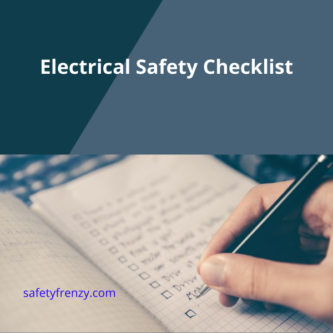Electrical wires are crucial for powering our homes, businesses, and daily activities. While these wires are designed to function in dry environments, they can pose serious risks when exposed to moisture.
In this article, we’ll explore the effects of water on electrical wires, the risks of electrocution and damage to electrical equipment, preventive measures, and how to handle wet electrical wires.
Understanding Electrical Conductivity
Before we delve into the effects of water on electrical wires, it’s important to understand electrical conductivity.
Electrical conductivity refers to the ability of a material to conduct electricity. Metals such as copper and aluminum are excellent conductors, while insulators such as rubber and plastic are poor conductors.
Insulators are used to coat electrical wires, preventing electricity from escaping and reducing the risk of electrocution.
Effects of Water on Electrical Wires
Water is an excellent conductor of electricity. When water comes into contact with electrical wires, it creates a path for electricity to flow through.
This can lead to electrocution if someone comes into contact with the wet wires. Additionally, water can damage the insulation on the wires, exposing the electrical current and creating a potential hazard.
Risk of Electrocution
Electrocution is one of the most serious risks associated with wet electrical wires. It occurs when a person comes into contact with an electrical current, either directly or indirectly.
The severity of electrocution can range from minor shocks to fatal injuries, depending on the level of voltage and the duration of exposure.
Factors that increase the risk of electrocution include standing water, wet skin, and contact with grounded surfaces such as metal pipes or appliances.
It’s important to be aware of the risks of electrocution and take steps to prevent it, such as turning off power to wet areas and using personal protective equipment.
Damage to Electrical Equipment
Water can also damage electrical equipment, such as appliances, computers, and power tools.
When water comes into contact with these devices, it can cause short circuits, corrode metal components, and damage internal circuits.
In some cases, water damage can be severe enough to render the device unusable or cause it to malfunction.
Short Circuits and Electrical Fires
A short circuit occurs when a current flows through an unintended path due to damaged insulation or exposed wires.
When water comes into contact with electrical wires, it can cause a short circuit, leading to electrical fires.
Electrical fires can be especially dangerous, as they can spread quickly and cause extensive damage.
Preventive Measures for Wet Electrical Wires
There are several steps you can take to prevent water damage to electrical wires and equipment. These include:
- Keep electrical devices away from water sources
- Install ground fault circuit interrupters (GFCIs) in wet areas
- Ensure that all electrical outlets and switches are properly sealed
- Have a licensed electrician inspect your home’s electrical system regularly
Handling Wet Electrical Wires
If you discover wet electrical wires, it’s important to take caution when handling them. Here are some steps to follow:
- Turn off power to the affected area at the circuit breaker
- Wear personal protective equipment, such as rubber gloves and boots
- Use a non-conductive object, such as a wooden stick, to move the wires
- Do not touch wet electrical wires with bare hands or wet clothing
Conclusion
Water and electricity do not mix. Wet electrical wires can pose serious risks, including electrocution, damage to electrical equipment, and electrical fires.
It’s important to take steps to prevent water damage and handle wet electrical wires with caution.
By following these guidelines, you can help keep yourself and others safe from the hazards of wet electrical wires.
you work With Electricity! Don’t leave empty-handed!
Looking to stay ahead of the game in the world of electrical engineering? Subscribe to my YouTube channel and gain access to exclusive content you won’t find anywhere else!
The staff I recommend (Amazon Affiliate Links to products I believe are high quality):
- Economy 120 Volt/60Hz AC Power Source – Step-Down Voltage & Frequency Converters 1800W
- UNI-T Digital Multimeter Tester UT139C
- 50-Amp Extension Cord for RV “100ft”
- Voltage Stabilizer 110/220v
- Hair Dryer “best selling“
- TOSHIBA EM131A5C-BS Countertop Microwave Ovens
Disclaimer: This contains affiliate links to Amazon products. I may earn a commission for purchases made through these links.

